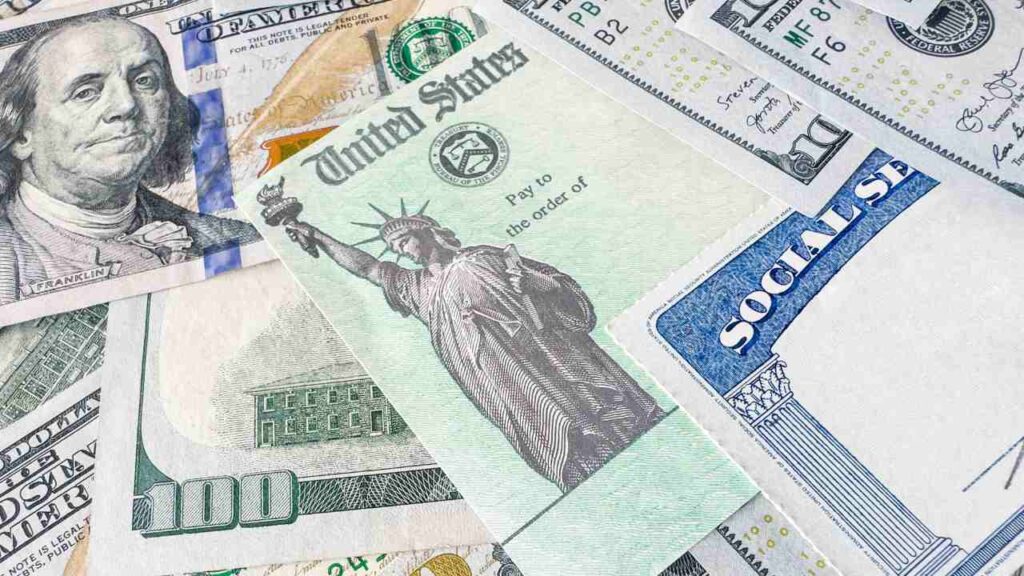The United States is trapped amids the paralysis caused by the partial shutdown of the federal government, which has now lasted two weeks, the Social Security Administration (SSA) and its disability benefits program (SSDI benefits) are not exempt from this problem that affects millions of workers and hundreds of federal agencies and departments.
The SSA has confirmed a delay in the announcement of the annual cost-of-living adjustment (COLA) for 2026. This measure, which directly affects more than 70 million beneficiaries, including retirees, survivors, and people with disabilities through Old-Age and Survivors Disability Insurance (SSDI), was scheduled for October 15, but has now been postponed until October 24.
The postponement is due to the Bureau of Labor Statistics’ (BLS) delay in releasing September inflation data, a process stalled by a lack of federal funding.
What to expect on your next SSDI benefits increase
The government shutdown, which began on October 1 after the failure to pass a temporary budget, has created uncertainty not only in the halls of Congress but also in the homes of millions of Americans who rely on these benefits.
“It’s a disgrace that a political disagreement leaves the most vulnerable people in suspense,” said Mary Johnson, senior analyst at The Senior Citizens League, in a recent interview. “These beneficiaries can’t wait; many are struggling to make ends meet with persistent inflation.”
The COLA is an automatic mechanism designed to protect the purchasing power of Social Security payments against rising prices. It is calculated based on the Consumer Price Index for Urban Workers (CPI-W) for the months of July through September.
The SSA explained that, nevertheless the government shutdown and the COLA 2026 delay, the increases will be retroactively applied. This means that you won’t be losing one single dollar despite the situation.
Valid SSDI payments in October
For 2025, the adjustment was 2.5%, a modest increase that raised average SSDI benefits to about $1,580 per month. However, analysts estimate that the 2026 COLA will be between 2.7% and 2.8%, driven by inflation that remains around 2.8% according to August data.
Organizations such as The Senior Citizens League project a precise 2.7%, which would represent an increase of approximately $43 in the average SSDI benefit, bringing it to about $1,623 per month starting in January 2026.
The maximum amount for 2025 is $4,018 per month, reserved for those who have accumulated the highest taxable income over a 35-year career. However, most receive much less: the average $1,580 barely covers 80% of the basic food basket for a single person, according to data from the Department of Agriculture.
SSDI payments are not affected or delayed
Disregard the delayed announcement, the SSA has assured that October payments will not be affected. SSDI beneficiaries will receive their checks on the usual third and fourth Wednesdays of the month (those in the first group, birthdates 1-10, also got their money on time on October 8th).
Thus, on October 15th—the third Wednesday—the funds will be deposited for those born between the 11th and 20th of any month. On October 22nd, the fourth Wednesday, the funds will be deposited for those born between the 21st and 31st.
What will happen if the SSA is not properly funded?
The impact of the shutdown goes beyond the COLA. The SSA is operating with limited funds, but has promised that benefits will continue to flow thanks to prior reserves. However, services such as claim renewals or phone assistance could slow down, particularly affecting the disabled who rely on immediate assistance.
Politicians from both parties have blamed the other for the crisis: Democrats point to Republican intransigence on budget cuts, while the latter demand tax reforms. The president has called for urgent negotiations, but experts doubt a resolution before the weekend.
Other analysts have warned that if changes aren’t made to improve SSA funding, the funds could run out by 2033, with the benefits for all recipients falling by as much as 33% in some cases.
These cuts would impact more than 60 million beneficiaries, and experts insist that lawmakers must act early to prevent this, as bipartisan solutions could include adjustments to contributions, retirement ages, or benefits.
